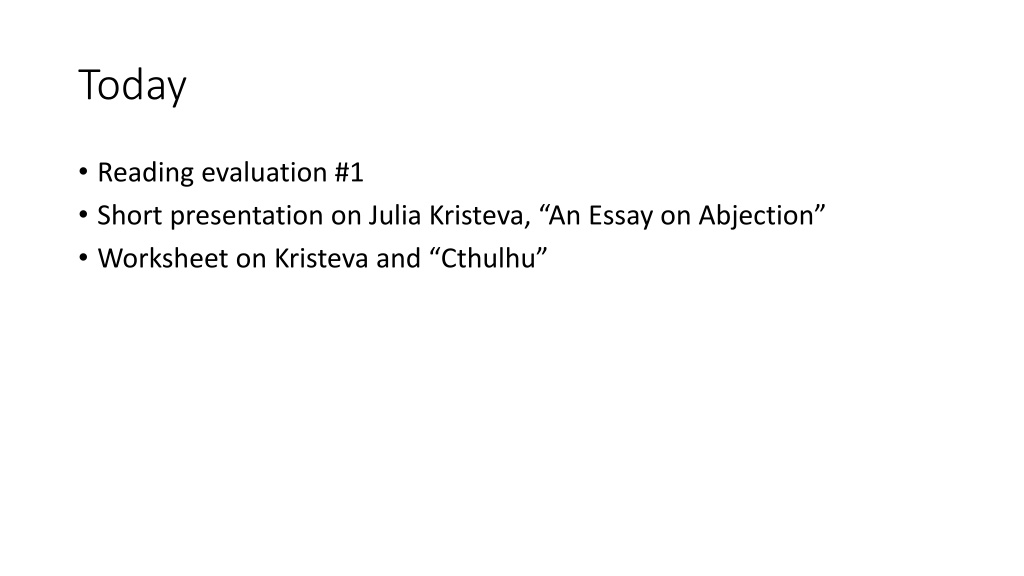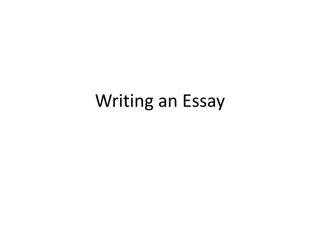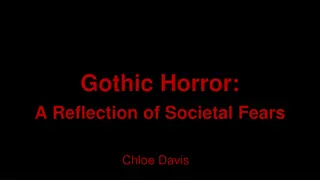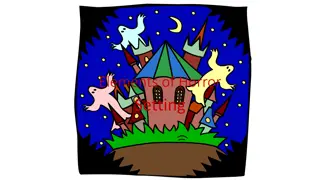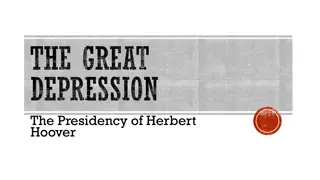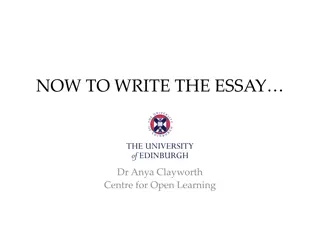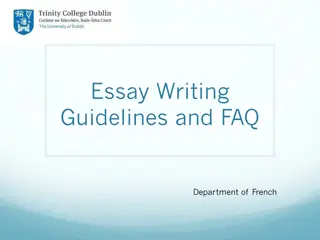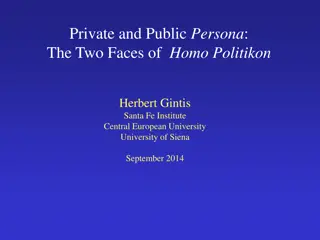Exploring the Concept of Abject in Julia Kristeva's Essay and the Horror of Herbert West
Delve into the profound analysis of the concept of abjection by Julia Kristeva as it relates to identity, agency, and the boundaries of the self. Connect this theoretical framework with the unsettling and horrifying elements present in the narrative of Herbert West, considering the themes of intentional criminality, reanimation, and the fragility of morality. Dive deep into the complexities of the abject in literature and psychoanalysis.
Download Presentation

Please find below an Image/Link to download the presentation.
The content on the website is provided AS IS for your information and personal use only. It may not be sold, licensed, or shared on other websites without obtaining consent from the author. Download presentation by click this link. If you encounter any issues during the download, it is possible that the publisher has removed the file from their server.
E N D
Presentation Transcript
Today Reading evaluation #1 Short presentation on Julia Kristeva, An Essay on Abjection Worksheet on Kristeva and Cthulhu
Abject: concept from psychoanalysis Corpses Dung Skin on milk Spoiled food Loathsome Intact person I My name My identity My ability to act (agency) My separateness from death Order Law Language Repelled by (threatens self) Perverse Intentional criminal Traitor Liar with good conscience Fascinated by (defines self)
In the symptom, the abject permeates me, I become abject. Through sublimation, I keep it under control. The abject is edged with the sublime. It is not the same moment on the journey, but the same subject and speech bring them into being. (11). To the vanished Herbert West and to me the disgust and horror were supreme. I shudder tonight as I think of it; shudder even more than I did that morning when West muttered through his bandages, Damn it, it wasn t quite fresh enough! (60) Corpses Dung Skin on milk Spoiled food Loathsome Intact person I My name My identity My ability to act (agency) My separateness from death Order Law Language Repelled by (threatens self) Perverse Intentional criminal Traitor Liar with good conscience Fascinated by (defines self)
3 things re: abject in Herbert West West as intentional criminal (if we re fascinated by him, why are we fascinated by him?) Corpses themselves (why are these unsettling in the text?) Reanimation/raced bodies that are reanimated ( glassy-eyed, ink- black apparition on all fours [65])
[The abject] is [w]hat does not respect borders, positions, rules. The in-between, the ambiguous, the composite. The traitor, the liar, the criminal with a good conscience, the shameless rapist, the killer who claims he is a savior . Any crime, because it draws attention to the fragility of the law, is abject, but premeditated crime, cunning murder, hypocritical revenge are even more so because they heighten the display of such fragility (4). Given what we know about West s lack of conscience, why are his acts so disturbing?
Repeated freshness Over and over again, we hear West or the narrator use the word fresh or freshness to refer to a corpse. What is unsettling about this word?
he gloated calmly over artificial monstrosities which would make most healthy men drop dead from fright and disgust (72) crimes he committed unmoved (72)
Lovecraft: West was a materialist, believing in no soul and attributing all the working of consciousness to bodily phenomena; consequently he looked for no revelation of hideous secrets from gulfs and caverns beyond death s barrier. I did not wholly disagree with him theoretically, yet held vague instinctive remnants of the primitive faith of my forefathers; so that I could not help eyeing the corpse with a certain amount of awe and terrible expectation (69) Kristeva: In that compelling, raw, insolent thing in the morgue's full sunlight, in that thing that no longer matches and therefore no longer signifies anything, I behold the breaking down of a world that has erased its borders: fainting away. The corpse, seen without God and outside of science, is the utmost of abjection (4).
What do you think this means? A massive and sudden emergence of uncanniness, which, familiar as it might have been in an opaque and forgotten life, now harries me as radically separate, loathsome. Not me. Not that. But not nothing, either. A "something" that I do not recognize as a thing. A weight of meaninglessness, about which there is nothing insignificant, and which crushes me. On the edge of non-existence and hallucination, of a reality that, if I acknowledge it, annihilates me. There, abject and abjection are my safeguards. The primers of my culture. I experience abjection only if an Other has settled in place and stead of what will be "me. (9)
a man at once physically powerful and of such high mentality that a sensitive nervous system was assured 74
A big fire at night always produces an exciting and exhilarating effect; this explains the attraction of fireworks; but in the case of fireworks, the graceful and regular shape of the flames and the complete immunity from danger produce a light and playful effect comparable to the effect of a glass of champagne. A real fire is quite another matter: there the horror and a certain sense of personal danger, combined with the well-known exhilarating effect of a fire at night, produce in the spectator (not, of course, in one whose house has burnt down) a certain shock to the brain and, as it were, a challenge to his own destructive instincts, which, alas, lie buried in the soul of even the meekest and most domesticated official of the lowest grade (18).
